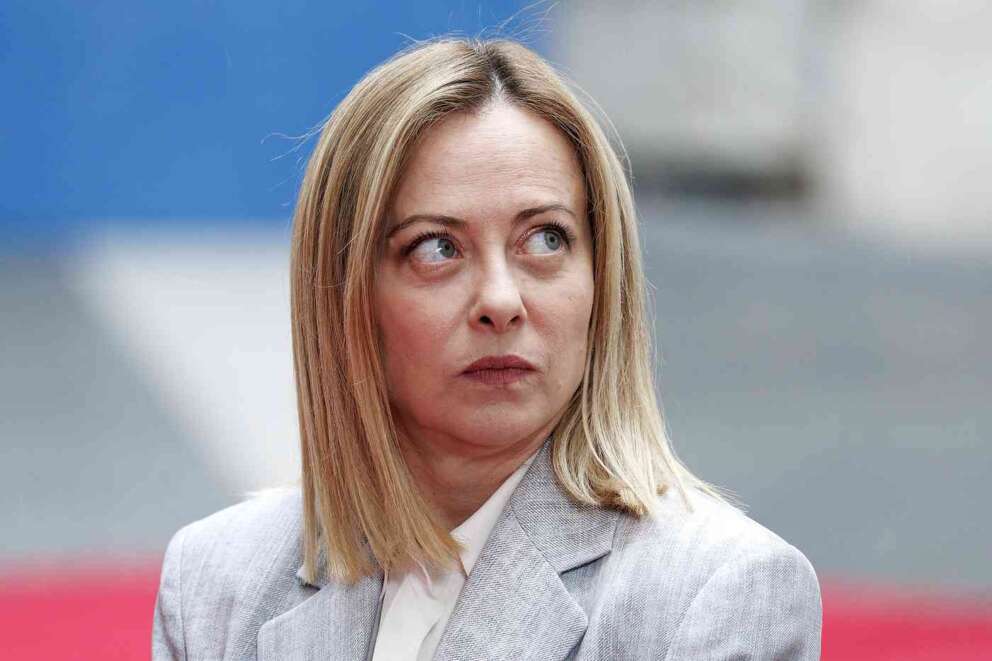Two traps for Meloni: she soars in the polls but must face a war between banks and foreign countries

The Prime Minister on the swing
He is rising in the polls, but is losing ground in relations between the US and Europe and risks taking a slap in the face in the race for control of Generali

In the polls Giorgia Meloni is flying. She is over 30. The tensions in the majority, never even close to breaking point, seem to have subsided. They will certainly explode again but they are unlikely to do more damage than the very little done so far. And yet the prime minister finds herself in perhaps the most difficult phase of her career as prime minister on fronts other than the all-downhill one of domestic politics: Foreign Affairs and Finance.
Yesterday, Corriere della Sera featured one of the few interviews granted by the Prime Minister, who is rather sparing on the subject. Only she said as little as possible and after meeting Erdogan she did not grant more: she barricaded herself behind the obvious, such as the hope that the tragedy in Gaza will end and therefore support for the mediation of Arab countries or that the meeting in Rome between Trump and Zelenky marks a turning point. She took a clear position only where the agreement in the entire West is unanimous: " The three-day truce proposed by Putin is decidedly insufficient ."
The prime minister's first problem is that the role she has carved out as a bridge between the two sides of the Atlantic is not working. She says it and repeats it in the interview: " For meetings to lead to results, time is needed, they must be adequately prepared. Today the time is not yet ripe ." But even if immature, time is also pressing, and the reality is that in his rapid tour of Rome Trump did not give any signal that would accredit the mediation role of his Italian friend. On the other hand, Treasury Secretary Bennett launched a real torpedo yesterday: " Some countries have imposed unfair taxes on our internet providers. We want to see them removed ." The countries in question are Italy and France. Then he, if not froze, at least cooled any optimism about negotiations with the EU: " They have some internal issues to resolve before they can engage in negotiations ."
In the interview with the main Italian daily newspaper, the Prime Minister has covered the possibility that the US-EU summit will not take place in Rome, as she wishes, but in Brussels : great satisfaction if the meeting will be in the Italian capital, but even if it were to be in Brussels or another location, I think I can say that I will have had some credit anyway”. Well, whether the summit takes place in Rome or not, from her point of view and as regards the recognition of the centrality to which she aspires in Europe, is not the same thing at all.
The second bitter pill is the move with which Mediobanca is trying to avoid the boarding of MPS. The game, which has at stake the heart of the Italian financial system, the control of Assicurazione Generali, is extremely complex and cannot be reduced to its directly political side. Which however is there and not in a secondary position. On that side the government's support for the MPS operation had been explicit and loud and moreover the key man of the maneuver is Caltagirone, much closer to the political system and in particular to the right wing in government than his direct rivals, Alberto Nagel , CEO of Mediobanca , and Philip Donnet , CEO of Generali . A failure on that terrain would be much more serious for the government even if less visible to the eyes of public opinion than many other apparently essential games.
This does not mean that Giorgia Meloni has lost on either front. Everything is still to be defined. What is clear, however, is that, having crossed the threshold of half the legislature, Giorgia Meloni's race has stopped being all downhill. But it is also true that the stakes have become infinitely higher.
l'Unità





